Are Lawyers Allowed to Walk Around Police Station
Are Lawyers Allowed to Walk Around Police Station
In today’s digital world, the ancient science of Vedic astrology meets technology through tools like online marriage astrology calculators, offering clarity and cosmic predictions with just your date, time, and place of birth. But the real depth of prediction lies far beyond a calculator’s numerical result — it’s in the hands of a skilled astrologer who interprets your chart with intuition, scriptural wisdom, and cosmic observation. That’s where Nayku’s astrology services shine — providing precise, confidential, and personalized online marriage prediction sessions rooted in Vedic knowledge yet adapted for the modern digital seeker. This is not just about “when,” but why and how your marriage will unfold the way it does. Let’s uncover that cosmic mystery step by step.
In the Indian legal system, police stations are critical centers for investigation, FIR filing, complaint registration, arrests, and interrogations. But what happens when a lawyer enters a police station? Is it legal? Can they walk around freely? What are their rights and limitations inside police premises?
This detailed guide explores the legality, procedures, boundaries, and ethical conduct surrounding lawyers' presence in Indian police stations. Whether you're a legal professional, student, or concerned citizen, this article offers a comprehensive look into the realities of lawyers walking around or entering police stations in India.
Platforms like Nayku help citizens and lawyers connect seamlessly, offering online legal consultations and insights into how to handle police matters professionally.
Understanding the Role of Lawyers at Police Stations
Lawyers often visit police stations to:
- Assist their clients during arrest or detention
- Get access to FIR copies
- Mediate in criminal or civil complaints
- Ensure no procedural violations take place during questioning
- Prevent unlawful detention or harassment
However, lawyers do not have unrestricted authority to walk into police stations and roam freely. There are protocols in place for both security and operational confidentiality.
Nayku’s online legal services often help citizens book legal assistance before they physically visit police stations to avoid complications or miscommunication.
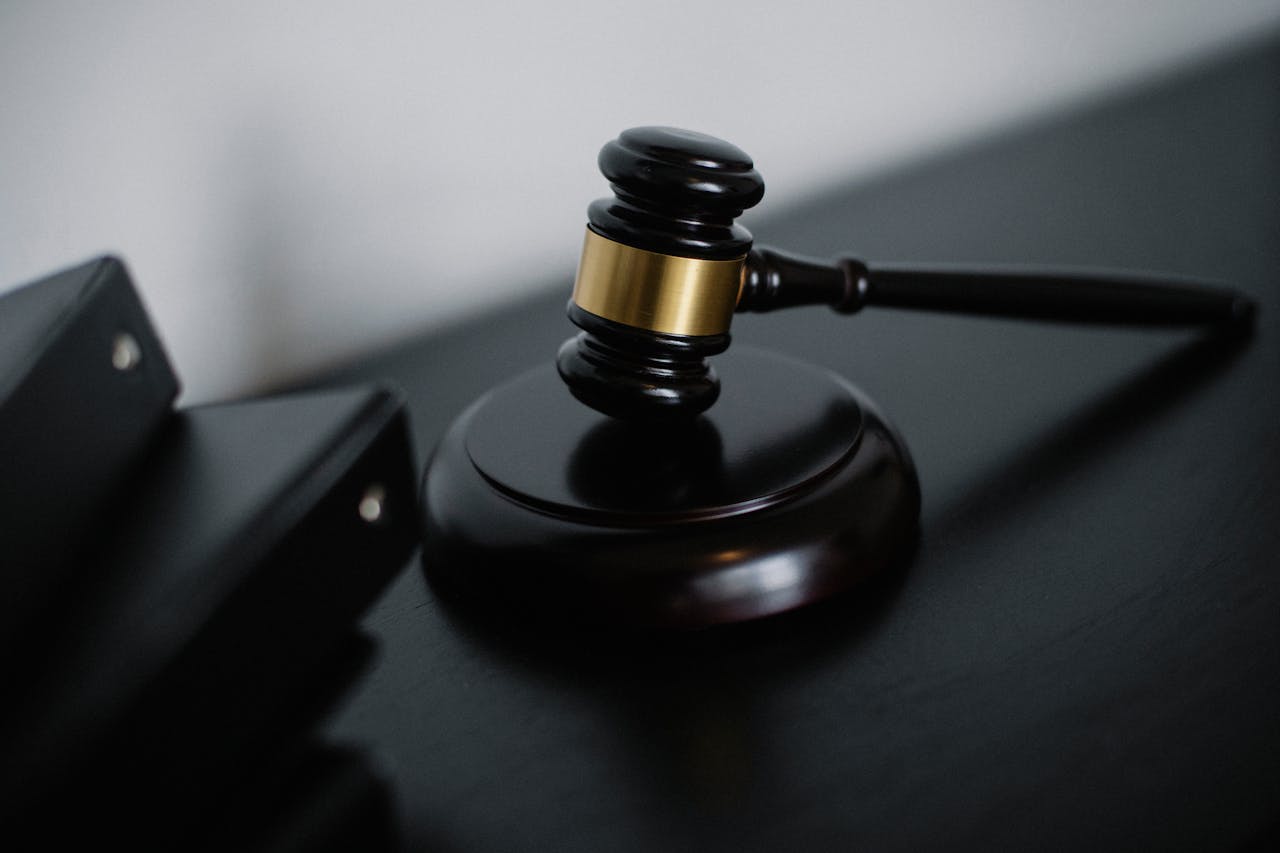
Legal Rights of Lawyers Inside Police Stations
The presence of lawyers in police stations is supported under several legal principles:
1. Right to Legal Representation
Article 22(1) of the Indian Constitution grants every arrested person the right to consult a legal practitioner of their choice.
2. Role under CrPC
Section 41D of the Code of Criminal Procedure (CrPC) allows an arrested person to meet their advocate during interrogation—though not necessarily throughout the whole process.
3. Supreme Court Guidelines
In DK Basu vs State of West Bengal, the Supreme Court laid down safeguards for detainees, including allowing lawyers to be informed of arrests and permitted to visit.
✅ Nayku Legal Services assists individuals in arranging lawyer visits to police stations when their loved ones are arrested, ensuring these rights are not violated.
Can Lawyers Freely Walk Around a Police Station?
Short Answer: No
Lawyers cannot just roam about a police station without a legitimate purpose or invitation.
Police stations are high-security operational zones, and unrestricted access could:
- Compromise sensitive investigations
- Violate witness confidentiality
- Disrupt day-to-day police work
Lawyers are allowed to enter designated public areas, such as:
- Duty Officer’s Desk
- Visitor Waiting Room
- Complaint Registration Section
However, they cannot walk into lock-ups, record rooms, interrogation cells, or SHO offices without express permission.
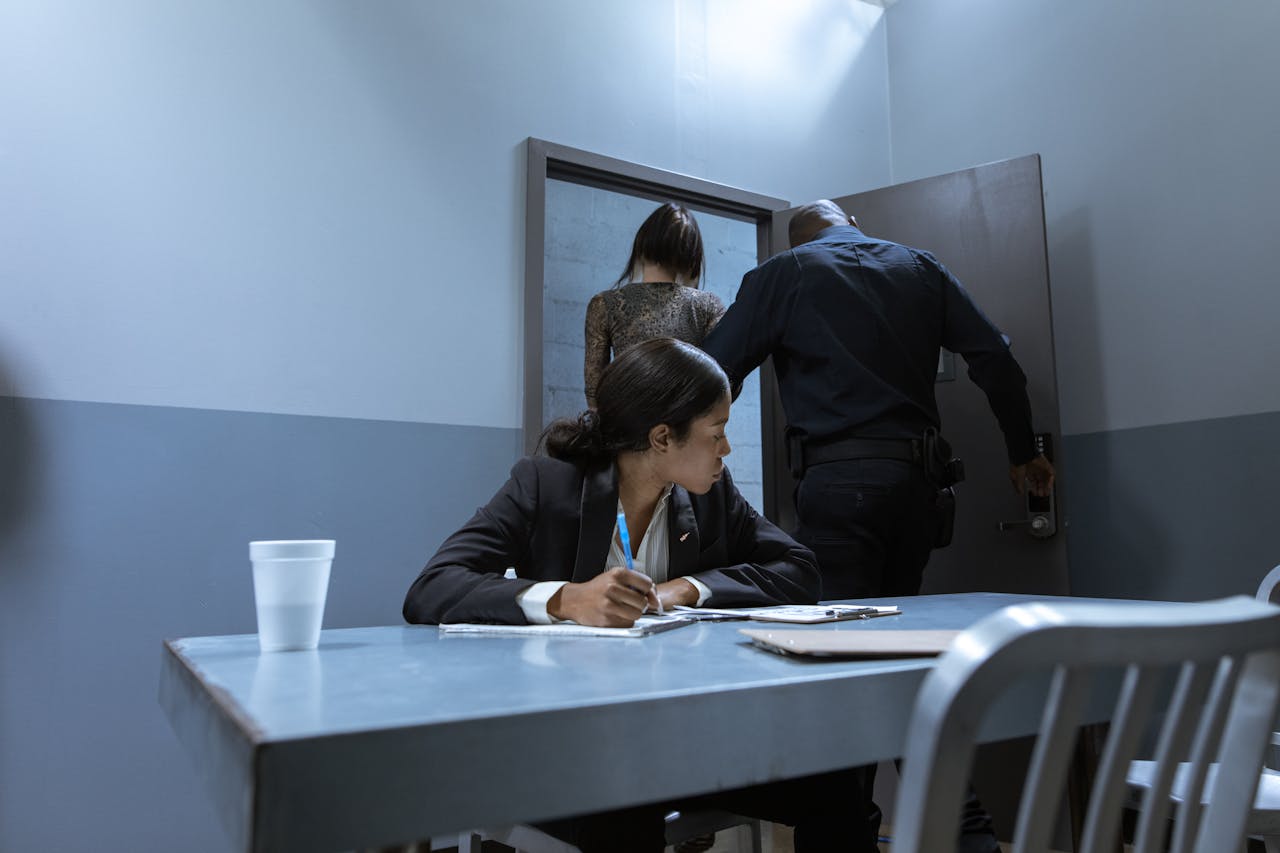
Procedural Norms for Lawyer Visits
When lawyers visit a police station:
- Entry must be logged in the visitor register.
- Identity must be disclosed, typically with a Bar Council ID.
- Purpose of visit must be stated clearly.
- Movement is monitored, and they are usually escorted by a constable.
Failure to follow these norms may lead to:
- Denial of entry
- Warnings under Section 186 IPC (obstructing a public servant)
- Disciplinary actions from the Bar Council if misconduct occurs
🛡️ Nayku’s legal advisors always recommend that lawyers or clients inform the police station in advance and carry official authorization letters when visiting.
When Lawyers Must Be Allowed?
Lawyers must be granted access in these scenarios:
1. During Client’s Arrest
To ensure the rights of the accused are upheld.
2. For Bail-Related Formalities
Including surrender, anticipatory bail coordination, or surety submission.
3. To Collect FIR or Case Diary Copies
As permitted under Section 207 CrPC.
4. For Mediation or Settlement Support
With prior permission and agreement from both parties.
✍️ Nayku offers pre-chat with police station visit guidance, where lawyers consult online first, then physically assist if required.
What Lawyers Cannot Do in Police Stations?
- Forcefully demand FIRs that are under preliminary inquiry
- Intimidate or influence witnesses
- Record videos or audio without permission
- Argue or debate with police staff on procedure in a disruptive way
- Stay back in unauthorized areas
Such behavior may lead to contempt complaints, FIRs, or professional misconduct cases.
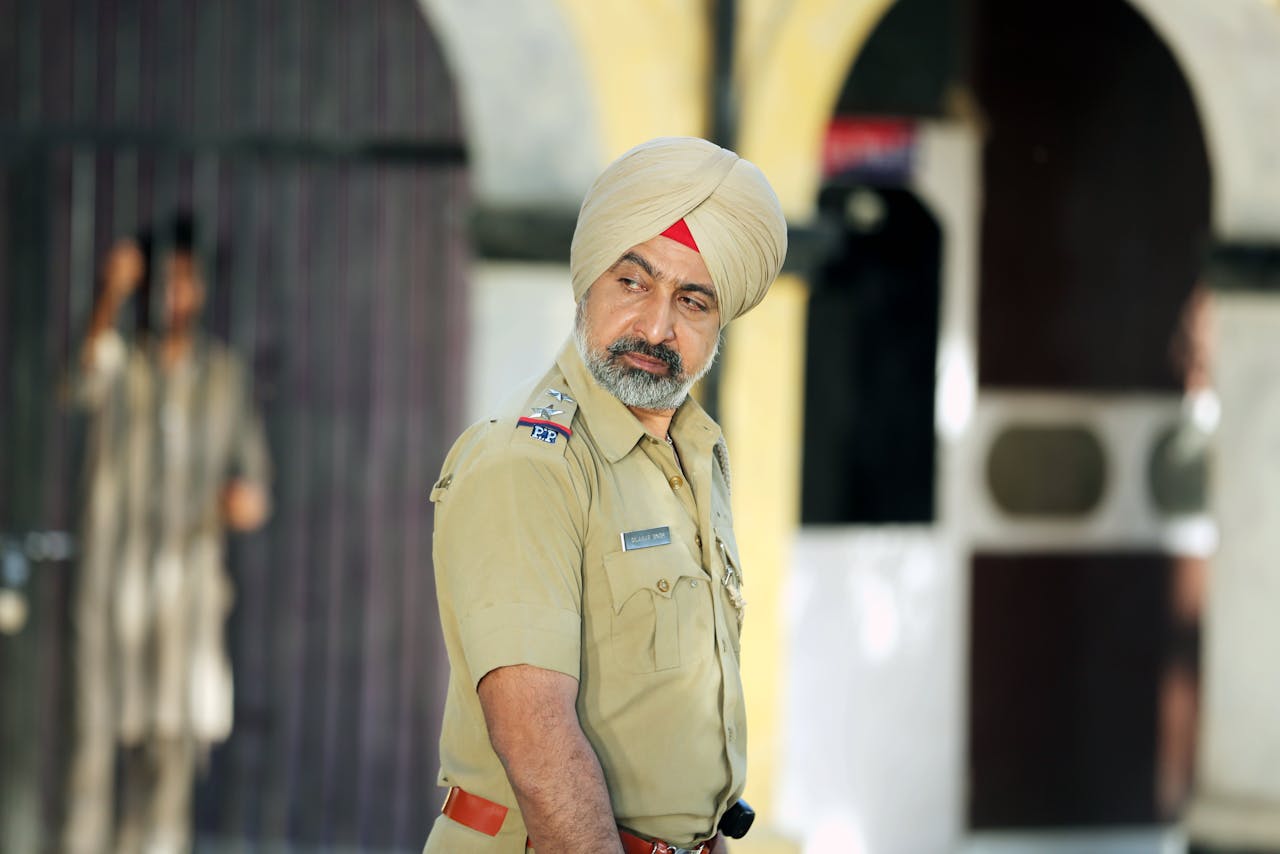
Real-Life Incidents and Legal Interpretation
Case Study: Advocate Entering Lock-Up Without Permission
In Mumbai, an advocate entered the lock-up to meet a client without prior clearance. The police booked him under IPC 353 (assault on public servant), which was later quashed citing lack of physical aggression. However, the court warned lawyers against unauthorized entry.
Case Study: Lawyer Demanding Copy of FIR at Night
In Delhi, a lawyer reached the police station at 1:00 AM demanding FIR copy. He was asked to return during working hours. The court upheld that police could delay non-urgent disclosures during off-hours.
These cases highlight balance of rights and respect for procedures.
👩⚖️ Nayku’s platform regularly updates users on real-time court rulings and how to navigate police stations without legal missteps.
Role of Police Discretion
Police officers may allow a lawyer additional access based on the situation:
- Sensitive custody cases
- Risk of human rights violations
- Client’s medical emergency
However, this is a courtesy—not a legal obligation unless mandated by a judge or CrPC provisions.
Ethics for Lawyers at Police Stations
Bar Council guidelines require lawyers to:
- Maintain decorum and professionalism
- Not solicit clients at police stations (unethical)
- Avoid public altercations with police
- Respect the chain of command
Lawyers are not above the law and may face action if they obstruct investigations or create public disturbance.
How Nayku Helps Lawyers & Citizens with Police-Related Matters?
1. Online Legal Consultation Before Visiting Police
Users can chat with experienced criminal or civil lawyers before approaching the police.
2. FIR Guidance & Complaint Drafting
Nayku helps citizens get properly worded complaints that police are more likely to act on.
- Lawyer-Police Liaison
- Preventive Support
Lawyers on Nayku assist clients in:
- Negotiating surrender
- Resolving disputes amicably
- Ensuring proper bail filings
If someone fears arrest, lawyers help file anticipatory bail or guide on safe cooperation with police.
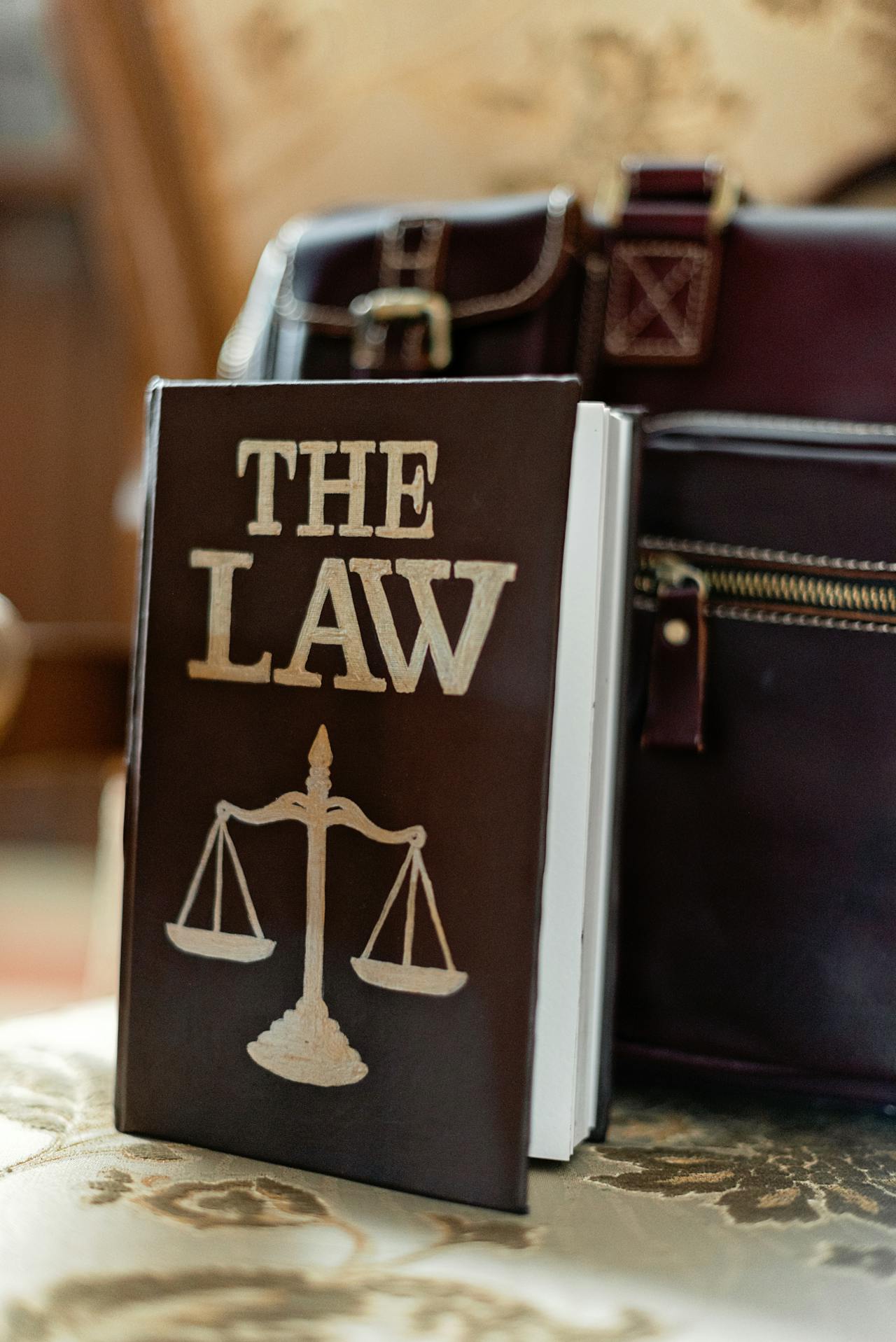
What to Do If a Lawyer Is Denied Entry?
If denied lawful entry:
- Politely ask for the reason
- Escalate to higher police authority (SHO, ACP)
- Record the refusal (not secretly)
- File a complaint with Bar Council if harassment occurs
- Approach court for legal remedy if needed
What Citizens Must Know?
If you're a common citizen:
- You have a right to legal representation
- You can insist your lawyer be called if detained
- You can bring your lawyer with you when called for questioning
Always keep a lawyer's number handy. With Nayku, you can connect instantly with criminal, family, or property lawyers in real-time for such emergencies.
Can a Lawyer File a Complaint at the Police Station?
Yes. A lawyer is also a citizen and can:
- File complaints for crimes against them or clients
- Assist in filing cybercrime, defamation, or blackmail complaints
- Follow up on legal notices already issued
However, they must follow the same process as any other complainant.
Importance of Written Authorization
When lawyers represent someone:
- A vakalatnama or authorization letter is advisable
- For property disputes, power of attorney is useful
- For criminal matters, client’s signature on applications is essential
Police stations generally prefer documented legal representation.
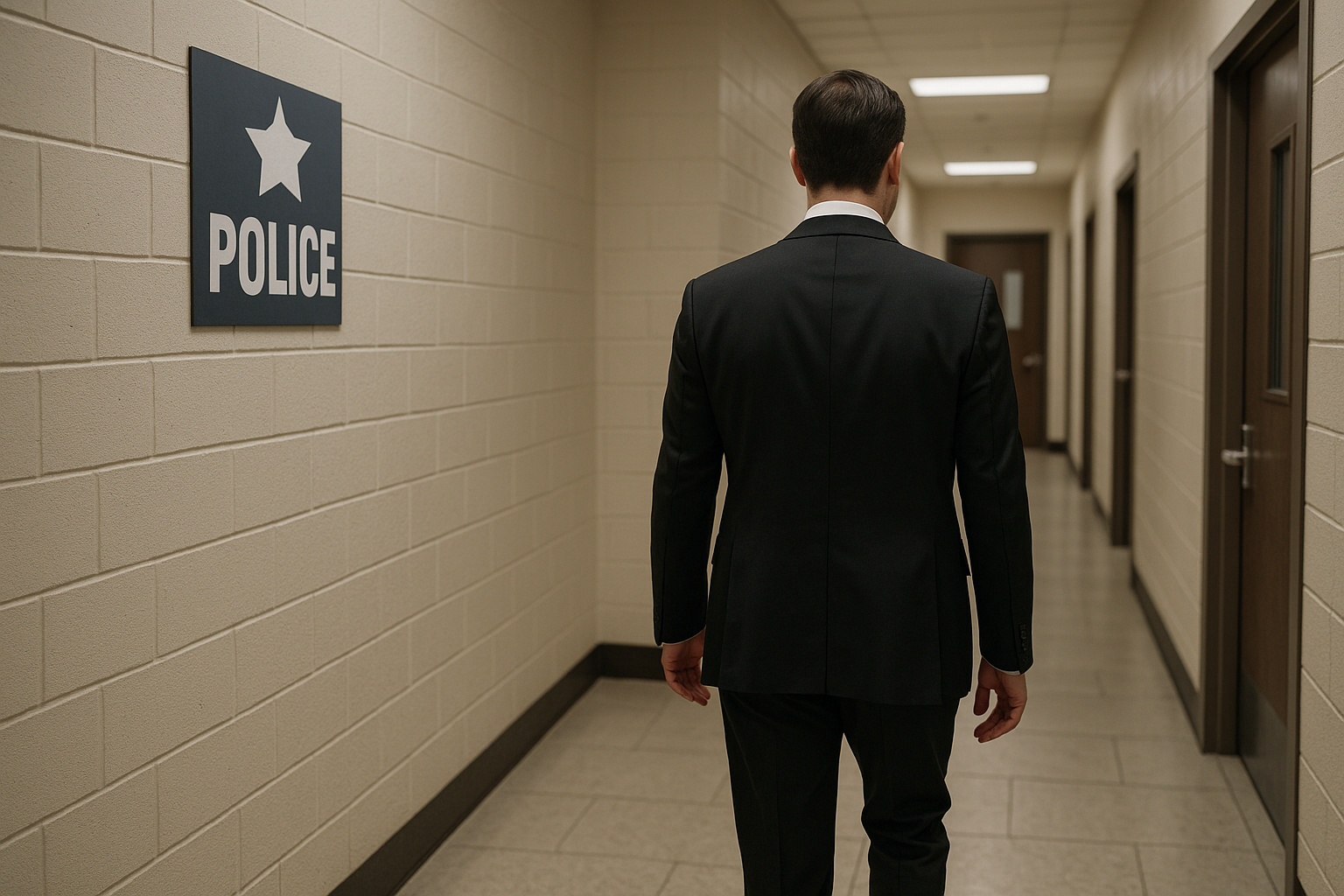
Conclusion – Balance of Rights and Protocol
So, are lawyers allowed to walk around police stations?
Yes—with limits. Lawyers can enter for legitimate reasons, access designated areas, and represent their clients. However, they cannot roam freely, interfere with investigations, or bypass police protocol.
Understanding this balance ensures smoother cooperation between legal professionals and police forces.
Platforms like Nayku bridge the gap between legal advice and police matters, offering 24x7 legal chat support, lawyer referrals, and document drafting—all online—before you even step into a police station.
Related Articles
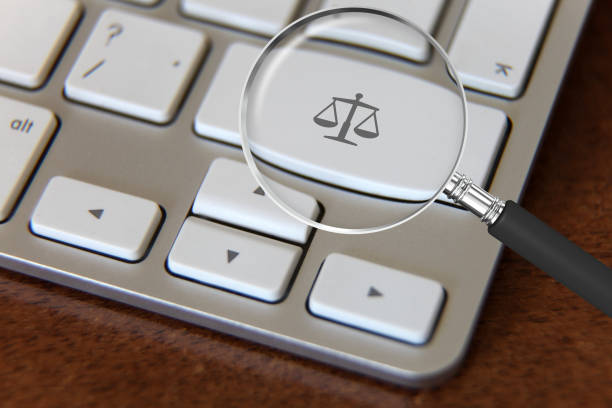
Find Best Online Lawyers in Bhopal Near Me
Find the best online lawyers in Bhopal near you for instant legal consultation, expert guidance, and...
Read More
Experienced Lawyers Online Legal Consultations In Bhopal
Connect with experienced lawyers in Bhopal for online legal consultations. Get reliable advice and s...
Read More
Get Professional Advice From Best Lawyers in Bhopal
Find top-rated lawyers in Bhopal offering expert legal advice. Get solutions for family, property, b...
Read More
